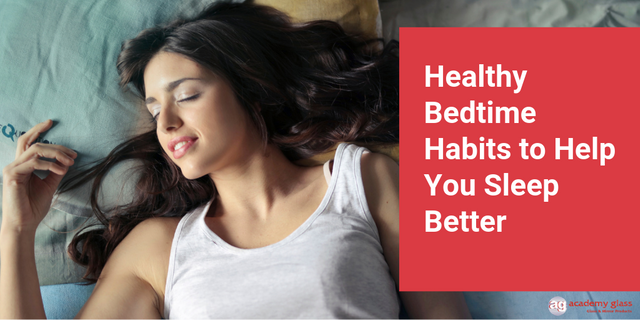
Good health is not just about balanced diet and regular exercise. According to dieticians and health experts, sleep is the third pillar of wellness that goes hand in hand with diet and workout. While sleep requirements vary depending on your lifestyle and tenacity, you need at least eight hours of rest at night. However, due to our hectic lifestyle and busy schedules, getting a good night’s sleep is difficult. In fact, one survey states that one in every three adults worldwide suffers from sleep deprivation. If you’re one, know that there are things that you can do to enjoy better sleep.
The duration and quality of your slumber depends on your bedtime activities, and disruptions to your routine can interrupt sleep or cause insomnia. With ritualized behaviours and specific practices, it’s possible to trick your mind into falling asleep quickly. Below are some simple bedtime habits you can adopt to ensure a more restful sleep.
Take a Hot Bath
Humans have two balancing parts in their autonomic nervous system, the sympathetic system and the parasympathetic system. While the former produces adrenaline that quickens heart rate, the latter releases the hormone acetylcholine which slows the heart rate and relaxes the sphincter muscles in the gastrointestinal tract. When you take a hot bath, the parasympathetic nervous system is activated, thus relaxing the muscles and reducing stress. This makes it easier to fall into a peaceful slumber. For a stronger effect, add some Epsom salt and a few drops of lavender oil to tub water to trigger stress relief and sleep improvement. Make sure to close the glass shower door for enhanced privacy and relaxation.
Use a Dim Light for Your Room
With sunset, your body's natural circadian rhythm (internal clock) lowers body temperature and prepares you for sleep. In fact, your body starts releasing the chemical ‘melatonin’ by the latter half of the evening; this is responsible for making you feel sleepy. With the use of artificial lights, our brain stops producing this hormone that promotes health and a regular sleep pattern. Relaxing in a dimly lit room an hour before bedtime stimulates the release of melatonin and prepares your body for sleep.
If you work night shifts and need to sleep during the day, make sure to use blackout shades in your bedroom. Humans generally wake up with the sunrise, so if you must sleep later, it’s important to block sunlight from disrupting your sleep. You can also use a soothing eye mask.
Avoid Caffeine and Smoking
The brain releases a chemical called adenosine that is critical for sleep, and caffeine affects its performance. That’s why having caffeine after 4 PM. (typically after lunch) can disturb your sleep pattern, because it remains in your system for a long time. In fact, it has a half-life of six to eight hours, which means that if you have a cup of tea at 1 PM, half of it will still be in your system at 9 PM. Therefore, adjust your caffeine intake accordingly and take note of the timings.
Smoking before bedtime is also a strict no-no as nicotine is a stimulant. You may find it relaxing, but it actually does the opposite by increasing heart rate and keeping your brain alert.
Switch Off Your Gadgets
Many of us habitually scroll through our mobile phones just before bed. We may find it relaxing, but it actually acts as a stimulant. The light from your phone or any other gadget (including TV) tricks the brain into thinking that it’s not bedtime yet, which inhibits the production of melatonin. Turn off your devices at least one hour before bedtime, or even better, keep them outside your bedroom. Instead, do something that slowly calms down your brain and gets you into sleep mode; for example, read a book or a magazine.
Lastly, avoid over-stimulating activities like cardio or aerobic exercises just before sleep. Instead, try stretching and acupuncture to improve blood circulation without making you feel tired. You can also pray or meditate before sleeping, as they help you let go of negative thoughts and make you feel more relaxed. When you have a good night’s sleep, you wake up feeling more energized. This increases your levels of feel-good hormones, including endorphins and serotonin, and will help you lead a happier life.